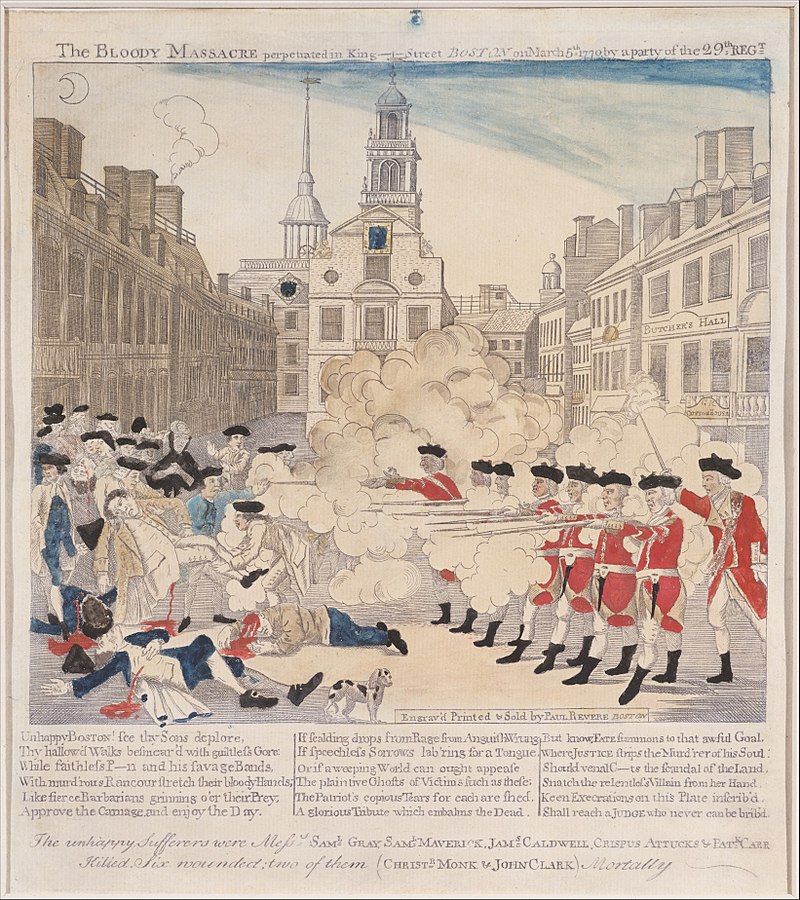Today in history marks the day when a tragic event unfolded on the streets of Boston, igniting the flames of revolution. On the evening of March 5, 1770, what began as a confrontation between an angry mob and a small group of Redcoats ended in a heartbreaking loss of life, a moment that would forever change the course of history.
By 1770, the American colonies were seething under British rule. The presence of British troops in Boston, stationed there since 1768 to enforce unpopular taxation laws, only deepened colonial resentment. That night, a crowd of colonists gathered near the Customs House, taunting and jeering at the British sentries. The protesters, many of whom called themselves Patriots, saw the soldiers as enforcers of tyranny. As the crowd grew, British Captain Thomas Preston, tasked with maintaining order, ordered reinforcements as the crowd became more aggressive, hurling snowballs, ice, and debris. The British soldiers, including Private Hugh Montgomery, were under increasing pressure and felt threatened. When Montgomery was struck, he fired into the crowd in self-defense. A moment later, other soldiers, also feeling threatened, followed suit.
When the smoke cleared, five colonists lay dead or dying. Among them was Crispus Attucks, a man of African and Native American descent, whose death made him a powerful symbol of the Patriot cause. Samuel Gray, Samuel Maverick, James Caldwell, and Patrick Carr also died.
The event sent shockwaves through the colonies. The British soldiers involved in the incident were put on trial, an effort led by none other than John Adams, who, despite his Patriot sympathies, believed in a fair trial. In December 1770, two soldiers, including Private Hugh Montgomery, were convicted of manslaughter and branded on their thumbs as punishment. This trial and its outcome were significant in demonstrating the rule of law in the colonies. Patriot leaders, including Samuel Adams and Paul Revere, seized the incident as a powerful propaganda tool. Revere’s famous engraving, depicting British soldiers firing in cold blood at innocent colonists, was a masterstroke in shaping public perception. The term’ Boston Massacre’ was strategically used to cement the event in the minds of Americans as a symbol of British oppression.
Though the American Revolution would not officially begin until five years later, the Boston Massacre was a critical turning point. It was a stark reminder of the growing divide between Britain and its colonies, which would soon lead to war. The massacre played a significant role in turning public opinion against British rule, a sentiment that would fuel the flames of revolution.

